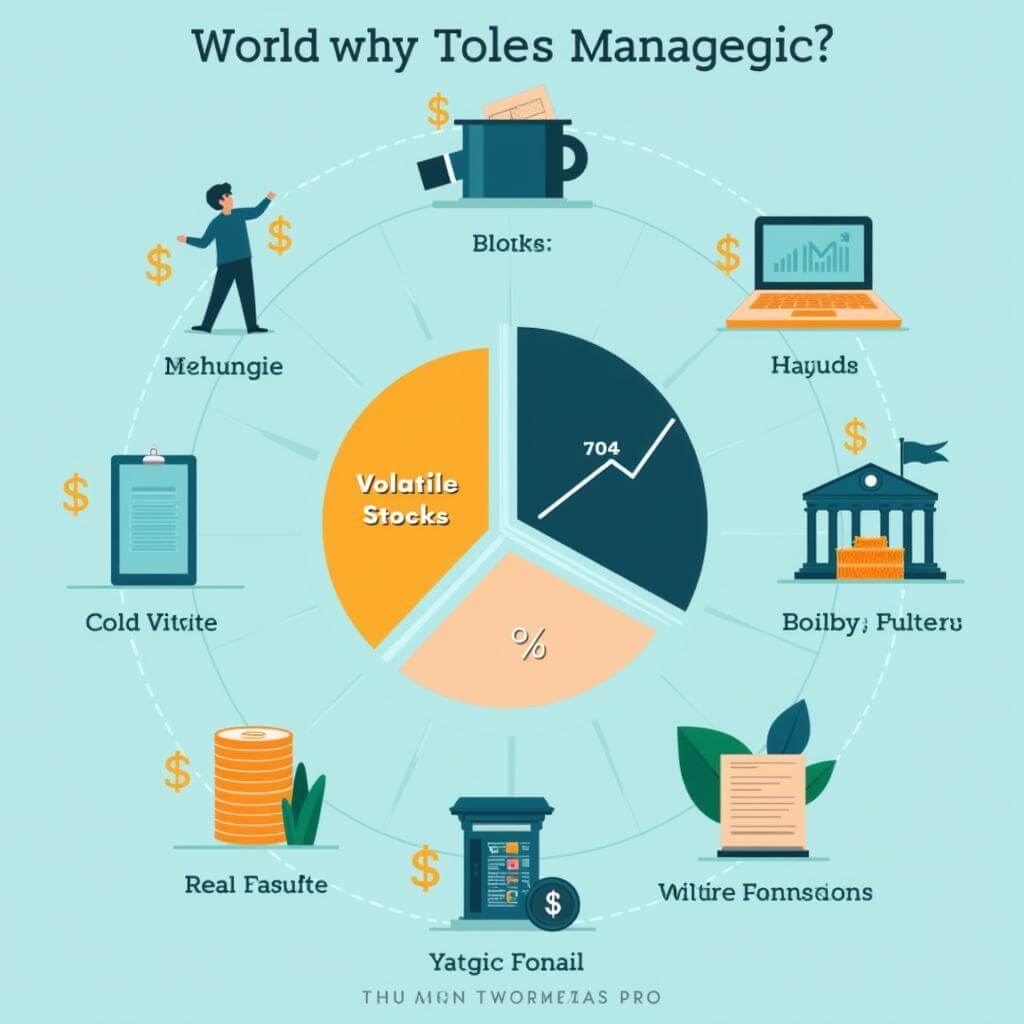Investing in volatile stocks is a topic that frequently appears in IELTS Writing Task 2 questions, particularly under the broader themes of economics, finance, and risk management. Based on past exam trends and the current economic climate, it’s likely that this subject will continue to be relevant in future IELTS tests. Let’s examine a sample question that closely mirrors those seen in recent exams:
Some people believe that investing in volatile stocks is a good way to make quick profits, while others think it is too risky and can lead to significant financial losses. Discuss both views and give your own opinion.
Analysis of the Question
This question falls under the “discuss both views and give your opinion” category. It requires candidates to:
- Explain why some people believe investing in volatile stocks can lead to quick profits
- Discuss the opposing view that such investments are too risky
- Provide a personal opinion on the matter
The key challenge here is to balance the discussion of both perspectives while clearly stating and supporting your own viewpoint.
Sample Essay 1 (Band 8-9)
Investing in the stock market has long been a popular method for individuals to grow their wealth, with volatile stocks often attracting those seeking rapid financial gains. While some argue that these high-risk investments offer the potential for substantial short-term profits, others contend that the associated dangers outweigh any possible benefits. This essay will examine both perspectives before presenting my own view on this contentious issue.
Proponents of investing in volatile stocks often point to the possibility of significant returns in a short period. These investors are drawn to the dramatic price fluctuations that characterize volatile stocks, seeing them as opportunities to buy low and sell high within compressed timeframes. Furthermore, in periods of economic uncertainty, some volatile stocks may outperform more stable options, as investors flock to companies that appear poised to benefit from changing market conditions. This potential for outsized gains can be particularly appealing to younger investors with a higher risk tolerance and a longer investment horizon.
On the other hand, critics argue that the risks associated with volatile stocks are simply too great for most investors to bear. The same price swings that can lead to substantial profits can also result in devastating losses, potentially wiping out an investor’s capital in a matter of days or even hours. Moreover, the unpredictable nature of these stocks makes them unsuitable for individuals relying on their investments for stable income or those nearing retirement. The stress and anxiety associated with monitoring such volatile investments can also take a toll on an investor’s mental health and overall well-being.
In my opinion, while investing in volatile stocks can be a viable strategy for certain individuals, it is not advisable for the majority of investors. The potential for quick profits is undeniably attractive, but the risks involved require a level of expertise, emotional control, and financial cushion that most people do not possess. Instead, I believe that a more balanced approach, combining stable, long-term investments with a small allocation to higher-risk options, is a more prudent strategy for most investors.
In conclusion, while volatile stocks offer the allure of rapid wealth accumulation, the associated risks cannot be overlooked. A thoughtful, diversified investment strategy that aligns with an individual’s financial goals, risk tolerance, and personal circumstances is likely to yield more consistent and satisfying results in the long run.
 Balancing risks and rewards in volatile stock investments
Balancing risks and rewards in volatile stock investments
Sample Essay 2 (Band 6-7)
In today’s financial world, investing in volatile stocks is a topic that many people talk about. Some think it’s a good way to make money quickly, while others believe it’s too dangerous and can cause big money problems. This essay will look at both sides and give my thoughts on this issue.
People who like investing in volatile stocks often say it’s a fast way to earn a lot of money. These stocks can change price very quickly, which means investors might be able to buy them cheap and sell them for much more in a short time. Also, when the economy is uncertain, some of these risky stocks might do better than safer ones because people think they might grow more in changing times. Young people who don’t mind taking risks and have time to recover from losses might find this kind of investing exciting.
However, many people think volatile stocks are too risky for most investors. The big price changes that can make people rich can also make them lose all their money very fast. This is especially bad for people who need their investments to give them regular money or who are close to retirement. Always watching these unpredictable stocks can also make people very stressed and worried, which isn’t good for their health.
I think that while some people might be able to make money from volatile stocks, it’s not a good idea for most people. It’s true that you might make money quickly, but you need to know a lot about the market, be able to control your emotions, and have extra money to lose. This is hard for most people. I believe it’s better for most investors to have a mix of safer, long-term investments with maybe a small amount in riskier stocks.
To sum up, volatile stocks might seem like a quick way to get rich, but they are very risky. It’s better for most people to have a careful plan for investing that matches their goals, how much risk they can take, and their personal situation. This way, they’re more likely to have good results over time without too much stress.
 Visualizing a diverse investment portfolio
Visualizing a diverse investment portfolio
Sample Essay 3 (Band 5-6)
Many people talk about investing in stocks that change price a lot. Some think it’s good to make money fast, but others say it’s too dangerous and you can lose a lot. I will talk about both ideas and say what I think.
Some people like these risky stocks because they think they can make a lot of money quickly. The price of these stocks goes up and down fast, so people try to buy when it’s low and sell when it’s high to make money. Young people who don’t worry about losing money might like this kind of investing because it’s exciting.
But other people think it’s too dangerous. You can lose all your money very fast if the stock price goes down a lot. This is very bad for old people who need money from their investments. Also, always checking these stocks can make people very worried and stressed.
I think investing in these risky stocks is not good for most people. You need to know a lot about stocks and be ready to lose money. Most people don’t have this knowledge or extra money. I think it’s better to invest in safer things and maybe put a little bit in risky stocks if you want to.
In the end, while you might make money fast with risky stocks, it’s very dangerous. Most people should have a careful plan for their money that fits what they need and how much risk they can take. This is better for making money over a long time without too much worry.
Explanation of Band Scores
Band 8-9 Essay:
- Task Response: Fully addresses all parts of the task with a well-developed response. Presents a clear position throughout.
- Coherence and Cohesion: Logically organizes information and ideas with clear progression throughout. Uses cohesive devices effectively.
- Lexical Resource: Uses a wide range of vocabulary with very natural and sophisticated control of lexical features.
- Grammatical Range and Accuracy: Uses a wide range of structures with full flexibility and accuracy.
Band 6-7 Essay:
- Task Response: Addresses all parts of the task, though some parts may be more fully covered than others.
- Coherence and Cohesion: Arranges information and ideas coherently and there is a clear overall progression.
- Lexical Resource: Uses an adequate range of vocabulary for the task with some evidence of style and flexibility.
- Grammatical Range and Accuracy: Uses a mix of simple and complex sentence forms with good control and few errors.
Band 5-6 Essay:
- Task Response: Addresses the task only partially, with limited development of ideas.
- Coherence and Cohesion: Presents information with some organization but may lack overall progression.
- Lexical Resource: Uses a limited range of vocabulary, but this is minimally adequate for the task.
- Grammatical Range and Accuracy: Uses only a limited range of structures with some errors that may impede communication.
Key Vocabulary to Remember
- Volatile (adjective) /ˈvɒlətaɪl/ – liable to change rapidly and unpredictably, especially for the worse
- Risk tolerance (noun) /rɪsk ˈtɒlərəns/ – the degree of variability in investment returns that an investor is willing to withstand
- Diversification (noun) /daɪˌvɜːsɪfɪˈkeɪʃən/ – the practice of varying investments within a portfolio to limit exposure to any single asset or risk
- Investment horizon (noun) /ɪnˈvestmənt həˈraɪzən/ – the length of time that an investor expects to hold an investment
- Capital (noun) /ˈkæpɪtl/ – wealth in the form of money or other assets available for investment
- Outperform (verb) /ˌaʊtpəˈfɔːm/ – to perform better than expected or better than a competitor
- Financial cushion (noun) /faɪˈnænʃəl ˈkʊʃən/ – money set aside as a reserve to cover unexpected expenses or losses
- Prudent (adjective) /ˈpruːdnt/ – acting with or showing care and thought for the future
- Allocation (noun) /ˌæləˈkeɪʃən/ – the action or process of distributing resources or funds for a particular purpose
- Market conditions (noun) /ˈmɑːkɪt kənˈdɪʃənz/ – the general state of the stock market, usually described in terms of the level of prices or trading activity of securities
In conclusion, the topic of investing in volatile stocks is a complex one that requires careful consideration of multiple factors. While we’ve explored this specific question, it’s important to be prepared for variations on this theme in future IELTS exams. Potential related topics might include the role of government regulation in stock markets, the impact of technology on investing, or the ethical considerations of high-risk investments.
To further improve your IELTS Writing skills, try crafting your own essay on this topic and share it in the comments section below. This practice will help you apply the vocabulary and structures we’ve discussed, and potentially receive feedback from other learners. Remember, consistent practice is key to achieving your desired band score in IELTS Writing Task 2.

